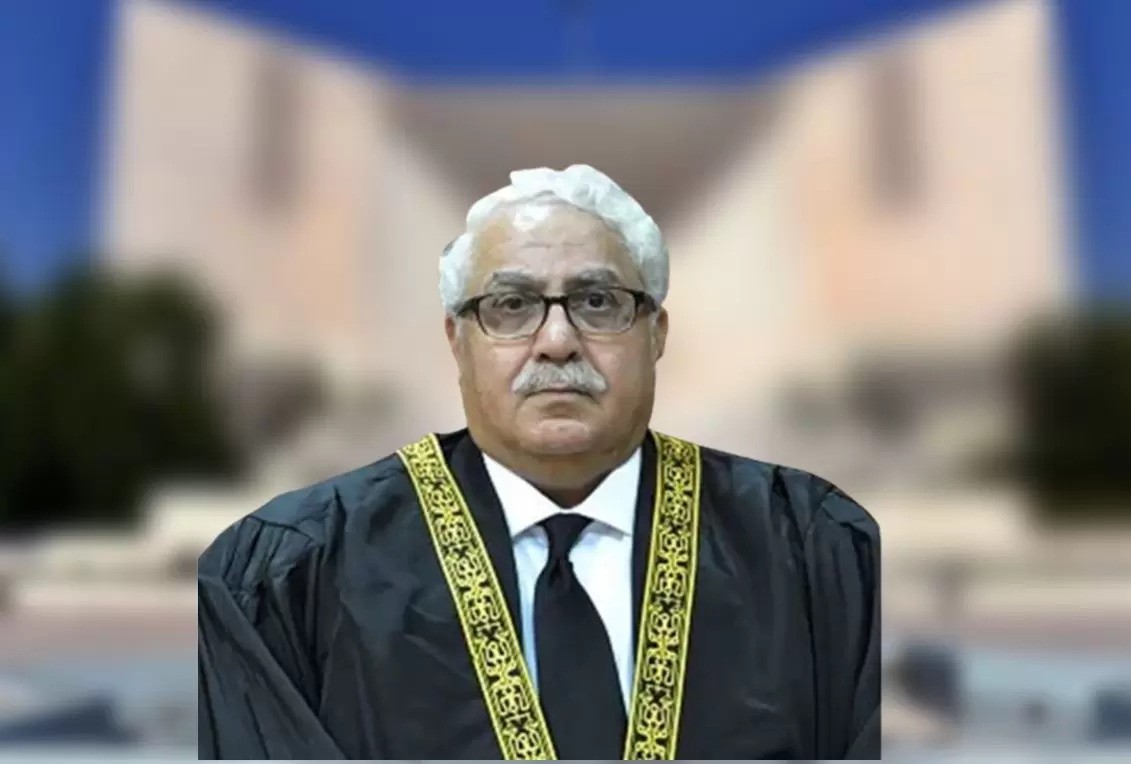ISLAMABAD: In a historic ruling, the Supreme Judicial Council (SJC) on Thursday found retired judge Sayyed Mazahar Ali Akbar Naqvi guilty of misconduct, marking the first time such a verdict has been passed against a Supreme Court judge.
“Allegations are being leveled and published against judges of the Supreme Court and High Courts. Several judges expressed concern that responding to such allegations could be interpreted as misconduct, as the Code of Conduct issued by the Supreme Judicial Council on September 2, 2009 states in Article V that a judge may not initiate legal proceedings. “The Supreme Judicial Council has deliberated on the matter and determined that an answer or clarification by or on behalf of a judge does not conflict with Article V,” said a press release from the SJC after convening a hearing on February 29 and March 1.
During the meeting, the SJC reviewed six complaints and rejected five for lack of merit. However, a complaint against a judge of the Balochistan High Court resulted in the issuance of a notice asking the judge to respond within fourteen days.
“The SJC gave its opinion on the nine complaints against Sayyed Mazahar Ali Akbar Naqvi under Article 209(6) of the Constitution of the Islamic Republic of Pakistan and ruled that he was guilty of misconduct and should have been removed from office and dismissed. right. Ends the press release.
Last month, in an unexpected turn of events, retired judge Naqvi resigned following allegations of misconduct. Surprisingly, retired judge Ijazul Ahsan followed suit within a day, leading to speculation about the reasons for his sudden departure.
“In the circumstances, some of which are well known, it is no longer possible for me to continue to serve as a Judge of the Supreme Court of Pakistan,” Judge Naqvi wrote in his dismissal.
“Careful process considerations are also crucial. Therefore, I am resigning as a judge of the Supreme Court of Pakistan with effect from today,” he added.
In a letter sent to Pakistan Chief Justice Qazi Faez Isa and all SC judges in December, Judge Naqvi wrote that the treatment meted out to him by the SJC was “simply shameful.”
There were ten complaints pending before the SJC accusing Judge Naqvi of misconduct.
In October last year, the SJC informed Judge Naqvi of the complaints filed against him and ordered the judge to submit a response within two weeks.
The SJC is led by CJP Isa and consists of Justice Tariq Masood, Justice Ijazul Ahsan, Chief Justice of the Lahore High Court Muhammad Ameer Bhatti, and Chief Justice of the Balochistan High Court Naeem Akhtar.
In a preliminary response submitted to the bench in November, Justice Naqvi cited “serious prejudice” against him and asked CJP Isa, Justice Masood, and CJ Akhtar to recuse themselves from hearing the case.
On November 20, Judge Naqvi challenged the proceedings initiated against him by the SJC and also challenged the notice of allegations sent to him by the board, claiming that the initiation of the proceedings was extrajudicial and without legal authority.
Later, the SJC issued another summons to Judge Naqvi on November 22, ordering him to file his response within fourteen days.
On December 4, Judge Naqvi again addressed the Supreme Court and expressed his intention to pursue the constitutional appeal he previously filed to quash the SJC’s revised show-cause notice.
After a few days, Justice Naqvi drew the attention of the SC committee, comprising three senior judges to the silence of his petitions challenging the issuance of show-cause notice despite the expiry of a deadline by the Supreme Court (Practical and Procedural Law, 2023.
On December 15, at a public hearing, the SJC gave Judge Naqvi two weeks to respond to the misconduct allegations and ordered him to file a response to the notice of accusation by January 1.
The judge then filed a lengthy response to the opinion, saying the allegations against him were “absolutely and maliciously false.”
He added that the SJC does not have the authority to file complaints against a judge, but only the right to receive “information.”
On January 8, Judge Naqvi withdrew his objection to the hearing of his plea before the three-judge bench, challenging the issuance of a bogus charge sheet against him.
Earlier, a three-judge SC bench headed by Justice Aminuddin Khan and comprising Justice Jamal Khan Mandokhail and Justice Musarrat Hilali had dismissed Justice Naqvi’s request to quash the pending SJC misconduct case.

